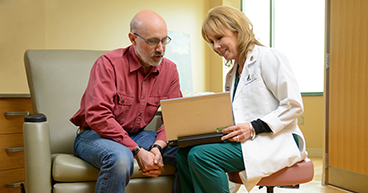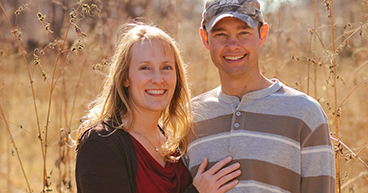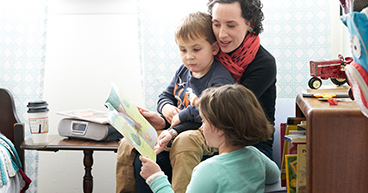


18 Posts

April 7, 2020
COVID-19 and caregiving: Steps to take to protect cancer patients and yourselfYour job as a caregiver may be more important than ever—and more difficult during the COVID-19 outbreak.

March 3, 2020
10 tips for talking to a loved one with cancerWhen a loved one is diagnosed with cancer, it’s normal to feel unprepared and unsure about how to react.

March 2, 2020
Writing may help patients vent and express emotions while coping with cancerJournaling can be an empowering tool—in sharing your story with the world, expressing your feelings privately and in coping with cancer.

December 23, 2019
Managing the stress of being a caregiverIt’s normal to feel angry and have anxiety as you constantly worry about the loved one under your care. You may also experience a loss of control due to the restrictions that your loved one’s pain has put on your own life. If you ignore your own emotions, these feelings can lead not only to emotional distress but, over time, to physical distress.

December 20, 2019
Heartache at home inspires passion for helping patients battle cancerDr. Jeffrey Weber explains how the loss of his daughter, Annie, to soft tissue sarcoma inspires his work as a Gastroenterologist at CTCA Phoenix.

December 10, 2019
Thoughtful care packages for the cancer patient in treatmentWhile every cancer patient’s journey is unique, many have common experiences during chemotherapy and radiation treatments. Here is a list of simple, affordable items that may boost patients’ spirits.

November 14, 2018
Busting myths: Three dangerous misconceptions about cancer and cancer treatmentIt is natural for a patient to develop erroneous beliefs about cancer and cancer treatment while missing out on important new insights that research shows may improve treatment outcomes.

September 19, 2018
Caring for the caregiver: Tips for navigating an unpredictable pathA critical member of a cancer patient’s team often has the least amount of training. Learn about the unique stressors of the caregiver role.

July 5, 2018
How to talk to your kids about your cancer diagnosisTelling your kids you have cancer may be an intimidating task. Here are some tips to get you started.
Guidelines
The information contained in this blog is not intended nor implied to be a substitute for professional medical advice. Always seek the advice of your physician or other qualified health provider prior to starting any new treatment or with any questions you may have regarding a medical condition. Nothing contained in the blog is intended to be used for medical diagnosis or treatment of any illness, condition or disease.